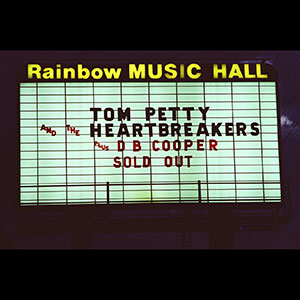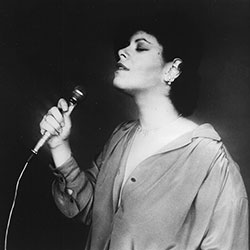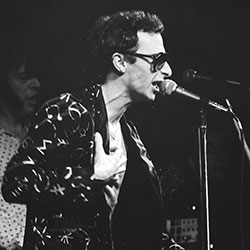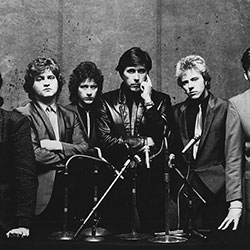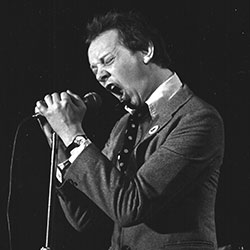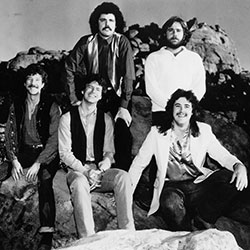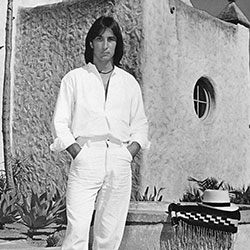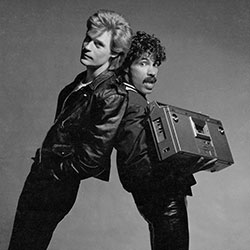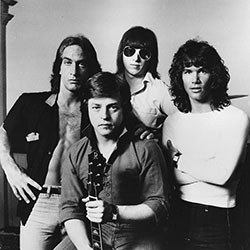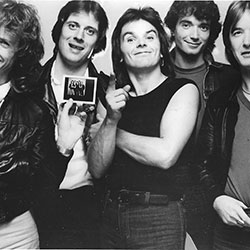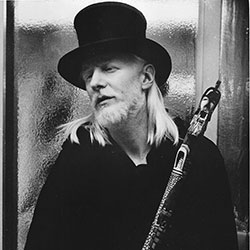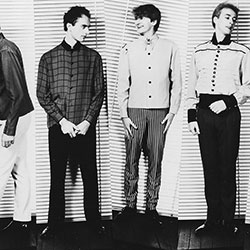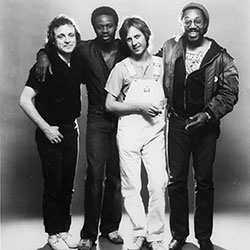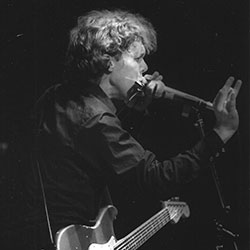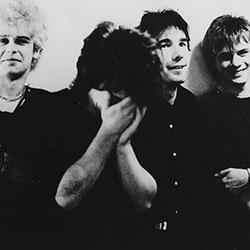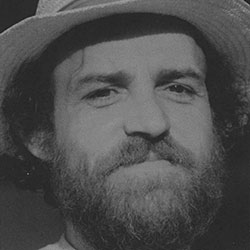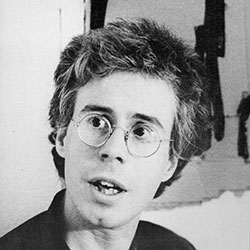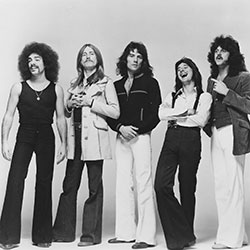Rainbow Music Hall 1979-1988
Located on the southwest corner of Monaco and Evans, the Rainbow Music Hall filled a huge need in the Denver concert scene from 1979 to 1989. The all-ages venue became a prime destination for a slew of iconic acts—from established stars (Bob Dylan, Journey, Tom Petty) to up-and-comers (U2, R.E.M. the Clash) and everyone in between.
The Rainbow boasted state-of-the-art sound by ListenUp, the local audio/video retailer, which professionally recorded many shows.
Phoebe Snow
Poetry Man
03.08.1979
The coterie of fans who had followed Snow’s career onstage and on her recordings since 1974 had always known what to expect—albums of soothing, blues-inflected ballads, rarely venturing far from her familiar image as a “torch” singer, contrasted by performances that were positively smoldering.
Graham Parker
Mercury Poisoning
04.15.1979
Graham Parker preceded Elvis Costello and Joe Jackson, two other new wave British singer-songwriters to whom he was compared. Irked with Mercury Records not promoting him sufficiently, Parker and his band, the Rumour, issued the angry, sarcastic “Mercury Poisoning” that directly attacked the label.
Roxy Music
In Every Dream Home a Heartache
04.17.1979
Following an almost four-year recording hiatus, Roxy Music supported 1979’s Manifesto album with an international tour, making a debut in Colorado at the Rainbow. The British art-rock band’s set included Brian Ferry’s disquieting monologue on the iconic “In Every Dream Home A Heartache.”
Joe Jackson
Is She Really Going Out with Him
05.06.1979
Joe Jackson’s “Is She Really Going Out with Him,” a derisive commentary on women dating unappealing men, launched the angry, intelligent British musician’s career and boosted the popularity of new wave music. One of the classics of that genre, the song remained a staple of Jackson’s live setlist.
Pure Prairie League
I Can’t Hold Back
07.17.1979
Pure Prairie League’s newly revamped line-up featured Vince Gill, whom the band remembered from a show he’d opened in Oklahoma City years early. He was offered a spot in PPL without auditioning—after turning it down, he reconsidered and became the lead singer, lead guitarist and youngest member.
Jim Messina
Angry Eyes
10.16.1979
Jim Messina’s odyssey began with Buffalo Springfield, carried him across concert stages with Poco and propelled him to fame with Loggins & Messina. With the release of his album Oasis, he found the right bandmates for his tour, their musical chemistry apparent in a cover of L&M’s “Angry Eyes.”
Daryl Hall & John Oates
Wait for Me
10.30.1979
Daryl Hall & John Oates attained their fame with a remarkable string of blue-eyed rock ’n’ soul hit singles. In 1979, the sleek, soulful “Wait for Me” was the proof of the duo’s appeal. In support of the X-Static album, they toured with guitarist G.E. Smith and saxophone and keyboard player Charle DeChant.
Rick Derringer
Rock and Roll, Hootchie Koo
01.26.1980
Long heralded as one of the most rocking guitarists in the business—he came to prominence in the ’60s as founding member of the McCoys (“Hang on Sloopy”)—Rick Derringer had returned to fronting a back-to-basics four-piece band. He’d had a major hit with his own song, “Rock and Roll, Hootchie Koo.”
Savoy Brown
Tell Mama
03.02.1980
A blues-rock/boogie band from England formed by lead guitar player Kim Simmonds, Savoy Brown promoted albums in the US with nonstop touring. In the late ’70s, Simmons achieved success assembling a new lineup spearheaded by the gutsy vocals of Ralph Morman, formerly of the Joe Perry Project.
Johnny Winter
Jumpin’ Jack Flash
10.19.1980
Perhaps no other white bluesman in the ’70s had done more to preserve and maintain the blues tradition than Johnny Winter. He had made 14 albums, some more rock influenced than others. At the Rainbow, he added a healthy dose of rock ’n’ roll to his version of the Rolling Stones’ “Jumpin’ Jack Flash.”
Split Enz
I Got You
10.31.1980
Frenz of the Enz were bowled over by the band’s True Colors, an album that moved into the vanguard of Australian releases. Singer Tim Finn had replaced an original member with his young brother Neil, and the gamble paid off, as Neil’s catchy single “I Got You” debuted at the top of the charts Down Under.
Jack Bruce & Friends
Sunshine of Your Love
11.20.1980
The vocalist and bassist of Cream, Jack Bruce co-wrote many of the British rock band’s songs, including “Sunshine of Your Love.” By 1980, his solo career was back on track with a new band, Jack Bruce & Friends, featuring drummer Billy Cobham, guitarist Clem Clemson and keyboardist David Sancious.
Steve Forbert
Song for Katrina
11.27.1980
Steve Forbert had developed into a gifted performer, never doing the same song twice in the same way or getting caught in a routine. His versatility contributed to the dynamics of his Rainbow show—he played both with a band and solo, his songwriting subtleties exhibited on the tender “Song for Katrina.”
U2
Out of Control
03.28.1981
From their late ’70s roots as a school band in Dublin, the members of U2 had played 217 shows in 11 countries, becoming a major contender for stardom. The US dates started with clubs and ended with headlining shows at such venues as the Rainbow. The Boy album, meanwhile, cracked the American charts.
Joe Cocker
With a Little Help from My Friends
05.02.1981
One of Joe Cocker’s first recordings, a breakthrough rearrangement of the Beatles’ “With a Little Help from My Friends,” brought him to near-instant stardom after a memorable performance at Woodstock. The song became a staple of the gritty, bluesy singer’s live shows, including his Rainbow Music Hall gig.
Bruce Cockburn
Rumours of Glory
11.04.1981
One of Canada’s finest artists, singer-songwriter and guitarist Bruce Cockburn found that, after working solo for many years, he enjoyed bouncing off of other musicians in a full-time band. The Humans album was informed by his political concerns and yielded the single “Rumours of Glory.”
Journey
Feeling That Way/Anytime
05.09.1979
Journey’s first album with vocalist Steve Perry, Infinity secured the band’s expanding reputation. In “Feeling That Way,” Perry duetted with keyboardist Gregg Rolie, who sang lead vocals on “Anytime.” On radio and in concert, those two songs were often played consecutively as presented on the album.

